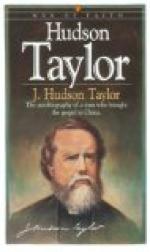“Over the turnpike went four-horse Concord stages, with berailed top and slanting boot in the rear for trunks and other baggage. Each one had the tin horn of the driver; and it was difficult to tell upon which the driver most prided himself—the power to fill that thrilling instrument, or his deft handling of the ponderous whip and multiplied reins. Travelers to Hartford and Boston went over this route; and an east and west through and way mail was a part of the burden. A sort of overland express and freight line, styled the Market Wagon, ran in and out of the town from several directions. One or more of these conveyances started from as far east as the Housatonic River, and they frequently crowded passengers in amongst their motley wares.
“Speaking of the stage-driver’s horn recalls the fact that when the steamboat arrived—which was so solitary an institution that for some time it was distinctly called ’The Steamboat’—the tin horn did duty also for it. When it was seen in the distance, either Albanyward or in the New York direction, a boy went through the village blowing a horn to arouse those who wished to embark on it. It is said the expectant passengers had ample time, after the horn was sounded, to make their toilets, run down to the river (or walk down) and take passage on it.
“In colonial days few were the people here; but they were a bright and stirring handful. It seems as if every man counted as ten. The De’s and the Vans, the Livingstons, the Schuylers, the Montgomerys and ever so many more of the Hudson River Valley settlers are still making their impress upon the country. I suppose it need not now be counted strange that the strong mixture of Dutch and English settlers, with a few Huguenots, which finally made Dutchess county, were not a little divided between Tory and Whig inclinations. Around Poughkeepsie, and in its allied towns stretching between the Hudson River and the Connecticut line, there was much strife. Gov. George Clinton in his day ruled in the midst of much tumult and turbulence; but he held the reins with vigor, in spite of kidnappers or critics. When the British burned Kingston he prorogued the legislature to Poughkeepsie, which still served as a ‘safe harbor.’ As the resolution progressed the Tory faction was weakened, either by suppression or surrender.
“It was in the Poughkeepsie Court House that, by one vote, after a Homeric battle, the colony of New York consented to become a part of the American republic, which consent was practically necessary to its existence.
“How large a part two small incidents played here towards the result of nationality. That single vote was one, and the news by express from Richmond, announcing Virginia’s previous ratification—and added stimulus to the vote—was the other. Poughkeepsie honored in May, 1824, the arrival of Lafayette, and dined him, besides exchanging speeches with him, both at the Forbus House, on Market Street,




